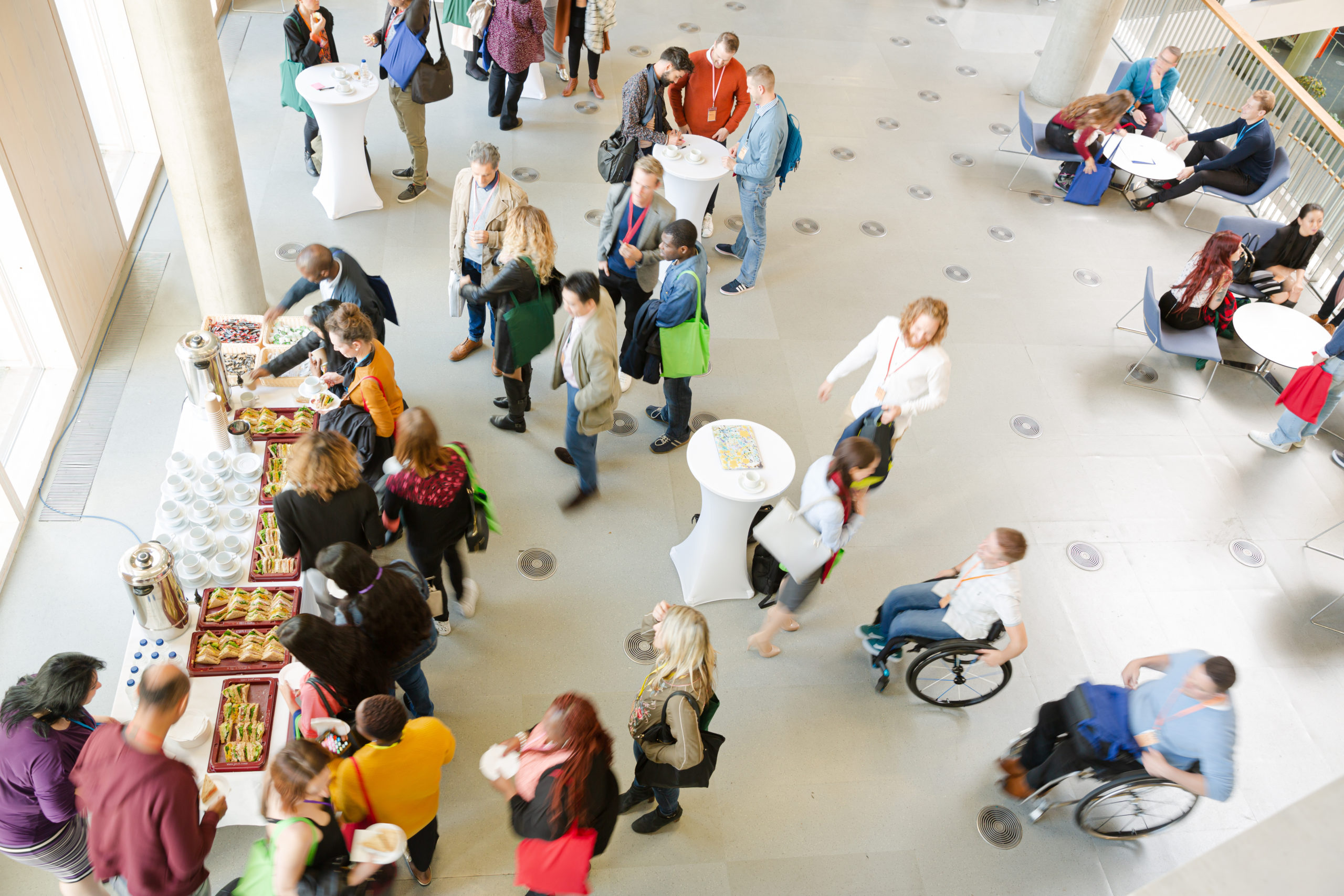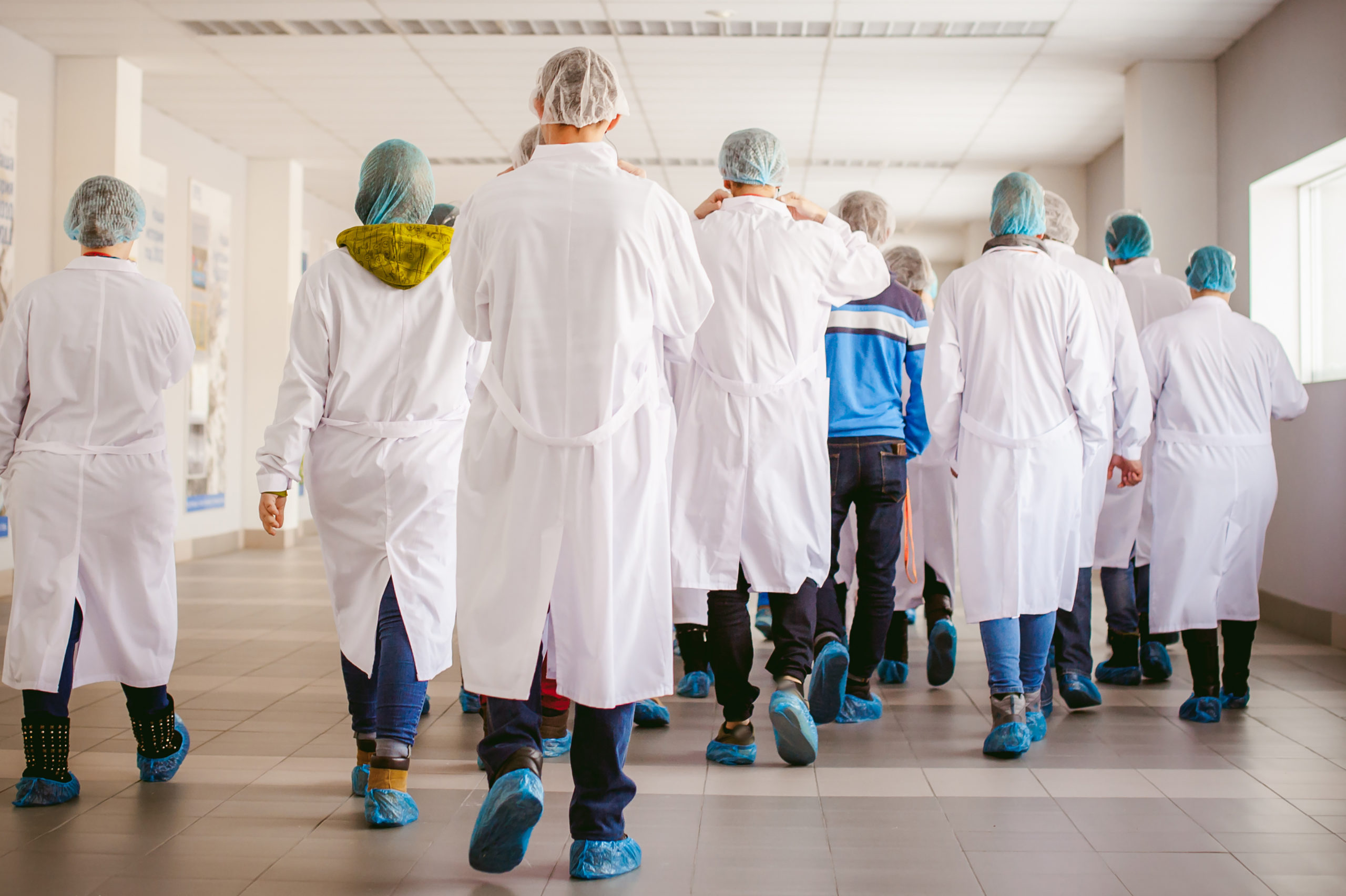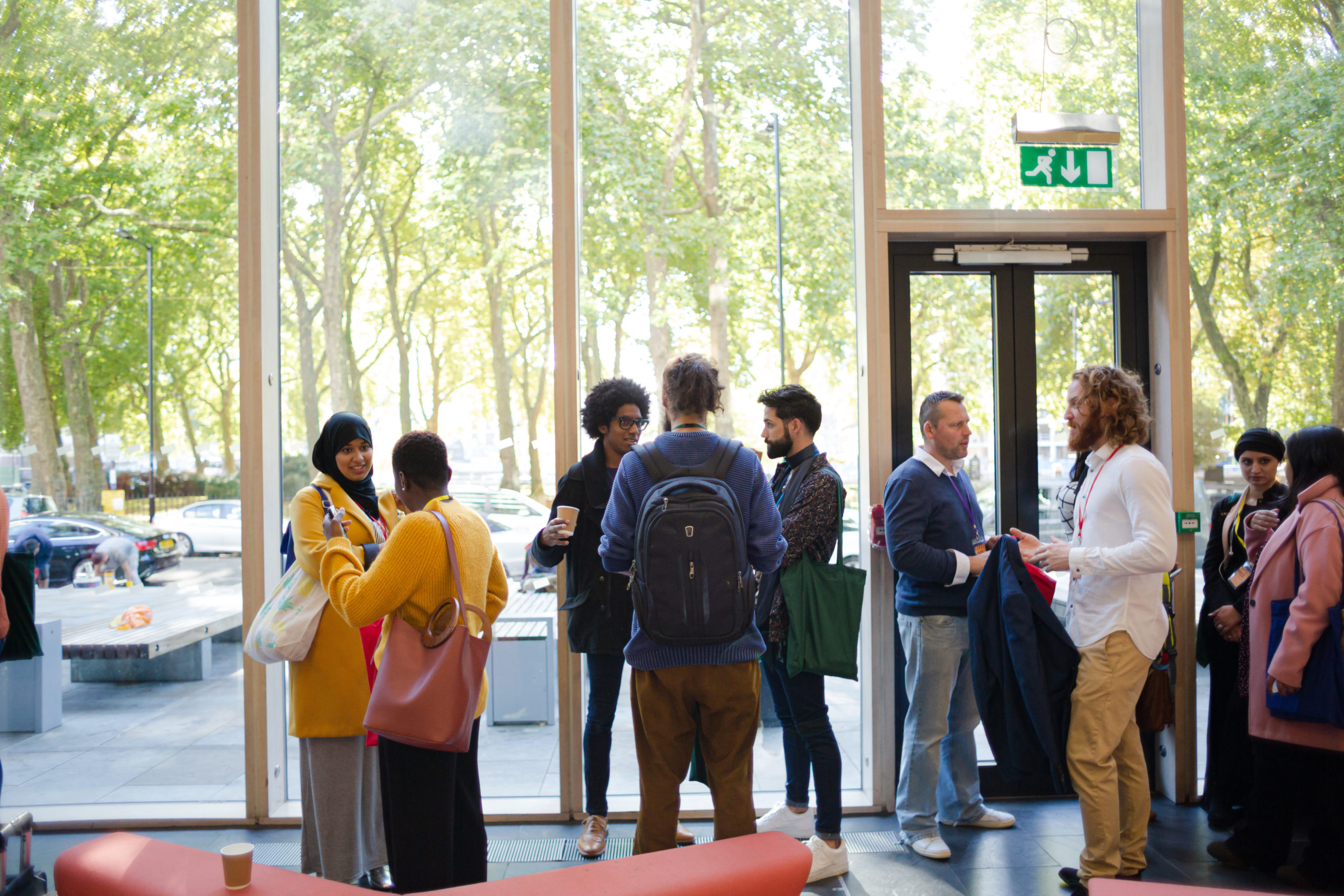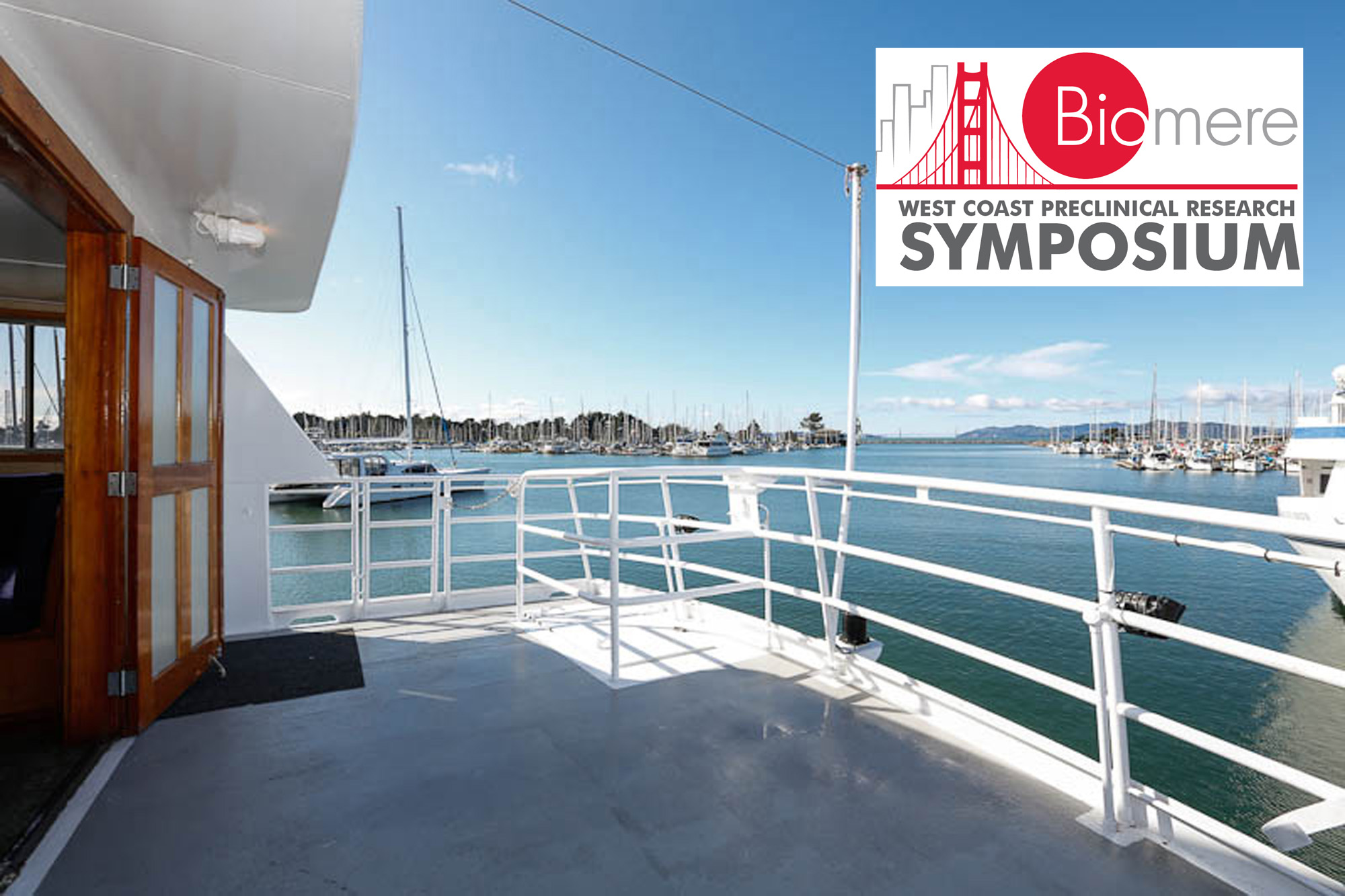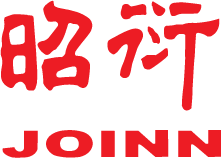
April 11, 2022 • JOINN INNOVATION PARK • 2600 Hilltop Drive • Richmond, CA
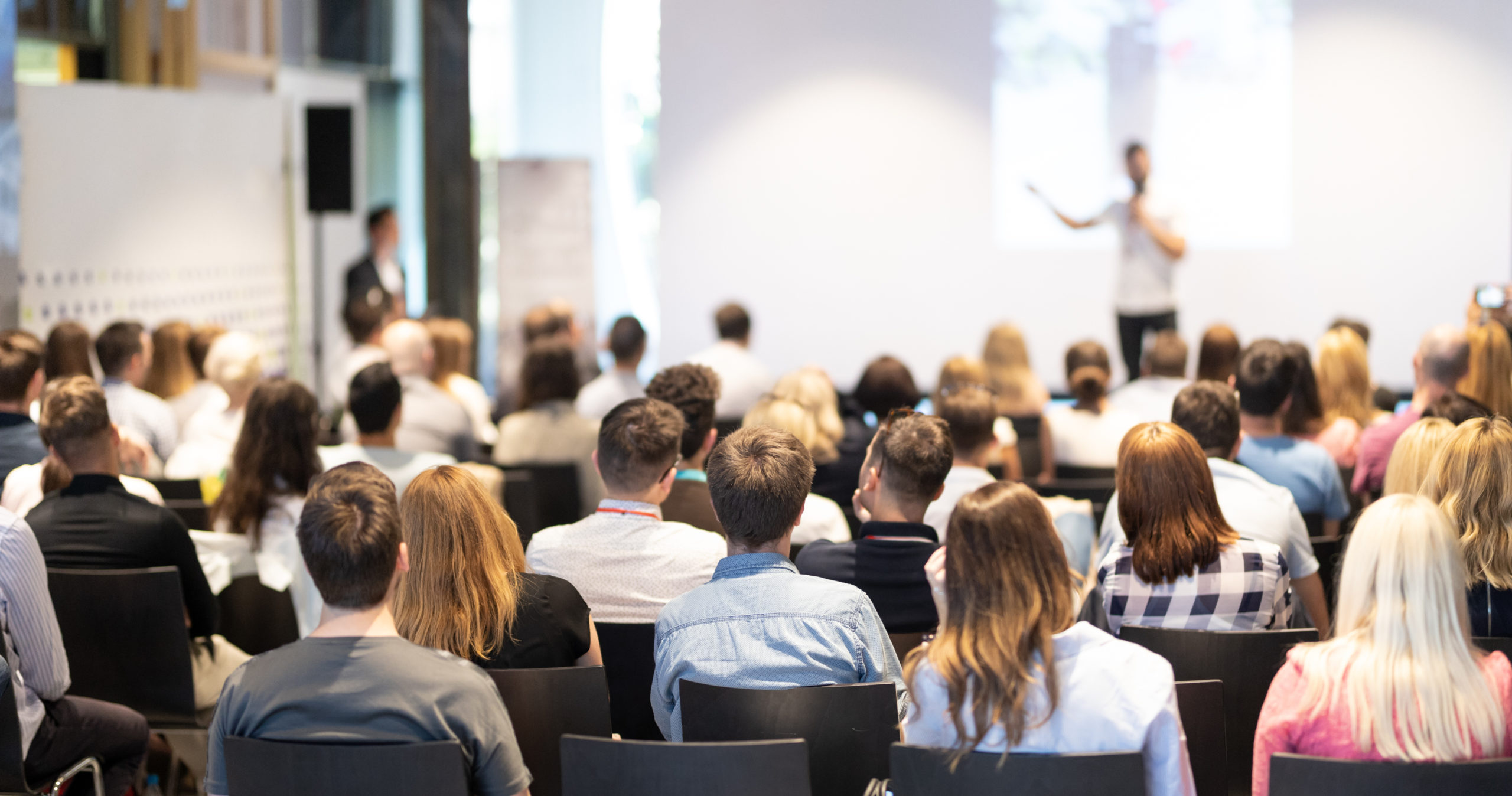
Please join us for the Biomere West Coast Preclinical Research Symposium. This educational event will be offered virtually as well as in person at the JOINN Innovation Park in Richmond, CA (San Francisco North Bay area). Our one-day symposium will feature presentations from KOLs, a networking luncheon and tour of the Biomere west coast vivarium. This networking event also concludes with a harbor dinner cruise out of Berkeley Marina for those who are interested (including transportation).
Symposium topics will focus on gene therapy, ophthalmology, CNS diseases and include a special forum discussing successful navigation of the IND process.
Seating is limited to 50, virtual attendance
is unlimited.
Please register to secure your seat to attend in-person, or virtually if you prefer to attend from afar. In-person registration will require current employment within a life science organization to assure the limited seating is maximized by those who will benefit from the presentations and networking activities. Virtual attendance is unlimited.
This event is part of the Biomere Forum Support Program and therefore, there is no registration fee. The BFS program supports our life science colleagues by providing monetary or professional support for their programs as well as supporting Biomere-hosted educational events.
In addition to this symposium, Biomere hosts a private life science sharing community, The Concourse, on our website, in which community members share their expertise. Browse and view educational webinars, articles, procedural shorts as well as our community blog.
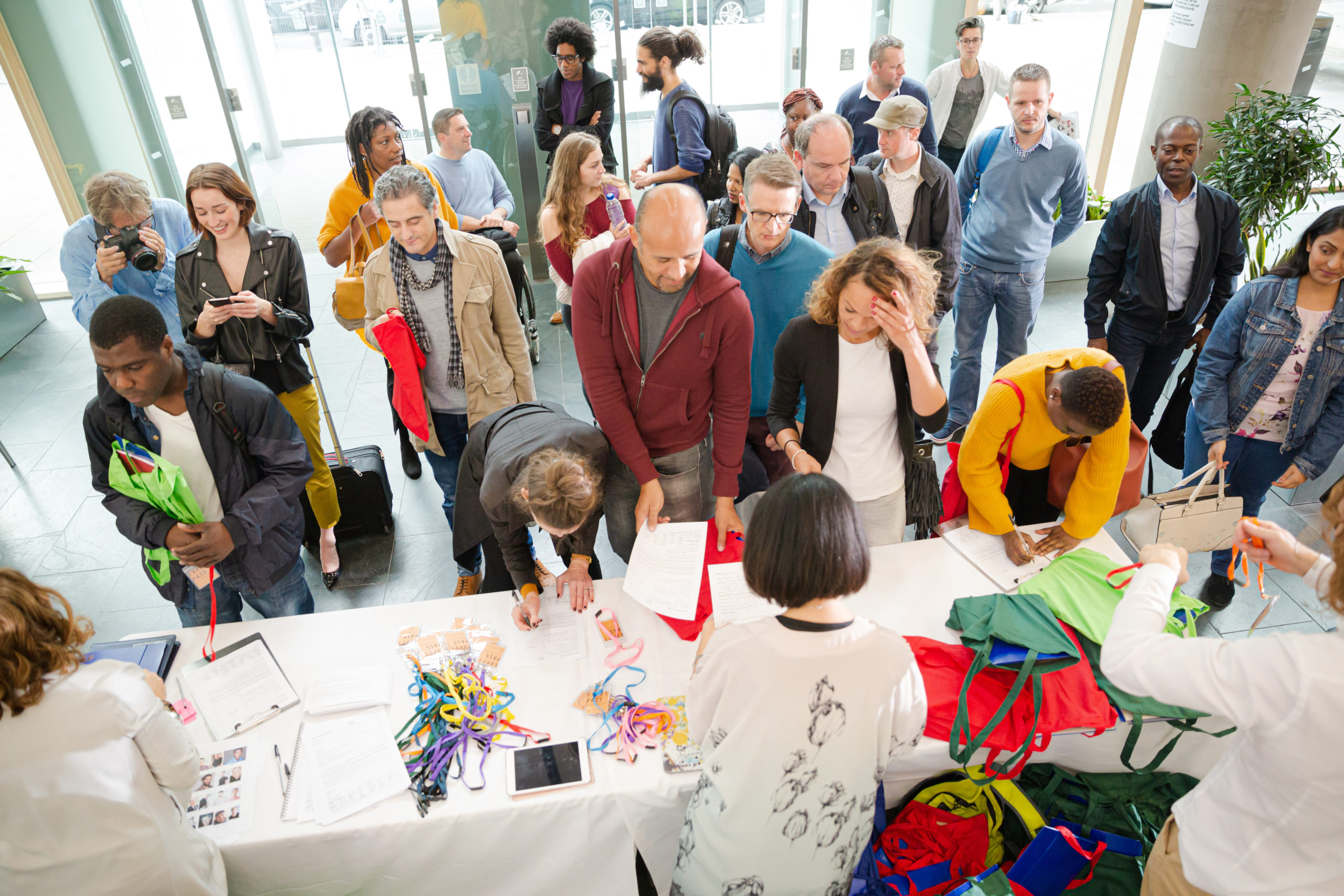
Biomere West Coast Preclinical Research Symposium Speakers
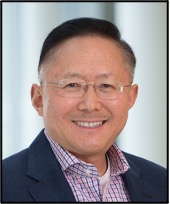
Dr. Guangping Gao, PhD
Professor in Biomedical Research
University of Massachusetts Medical School
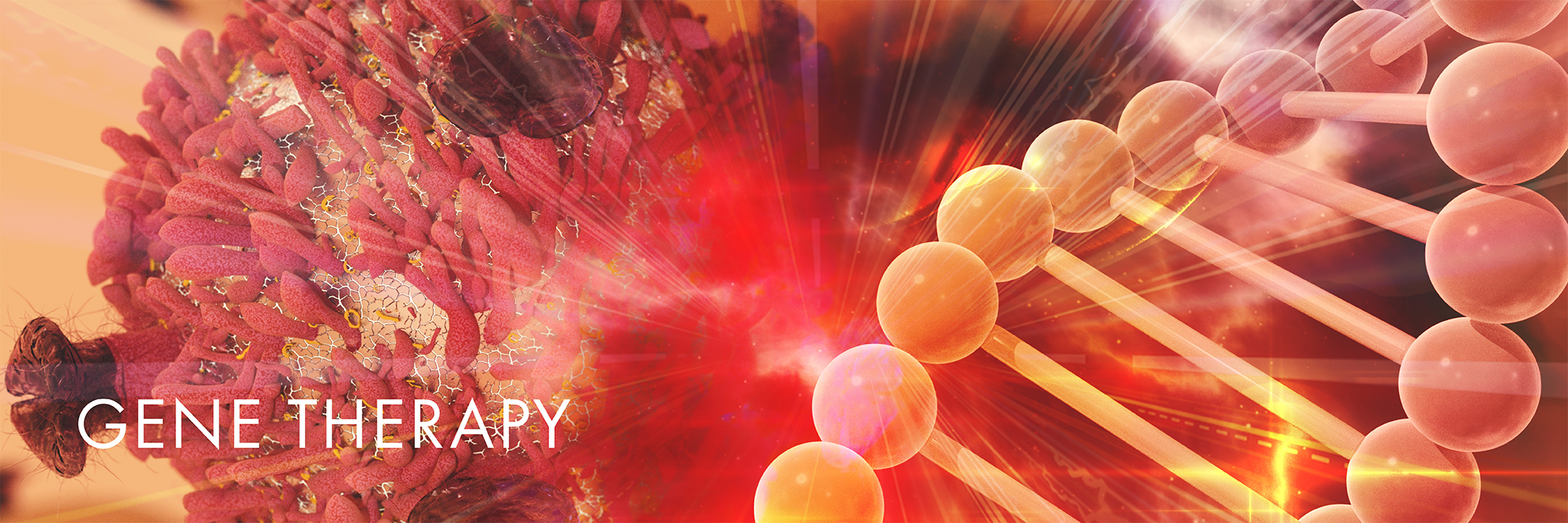
Dr. Guangping Gao will be presenting Current Gene Therapy Trends. The final title and abstract will appear closer to the conference championing truly present-day data.
Guangping is the Co-Director of the Li Weibo Institute for Rare Diseases Research, Director, Horae Gene Therapy Center and Viral Vector Core, Professor of Microbiology and Physiological Systems, Penelope Booth Rockwell Professor in Biomedical Research at the University of Massachusetts Medical School. He was elected as a fellow of the US National Academy of Inventors and American Academy of Microbiology and is the outgoing President of the American Society of Gene and Cell Therapy. He has been ranked as the World Top 20 Translational Researchers for several years in a row by Nature Biotechnology. Dr. Gao has focused on molecular genetics and viral vector gene therapy of rare genetic diseases over his 30-year career, and has co-founded several companies including Voyager Therapeutics, that focus on developing AAV gene therapeutics for rare diseases.
Dr. Gao would like to share the following links supporting the gene therapy community:
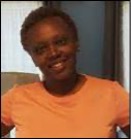
Dr. Harriet Kamendi, PhD
Consultant

Harriet’s presentation will address pitfalls and helpful tips supporting successful navigation of the IND process. Attendees will benefit from Harriet’s extensive experience and advice supporting a prepared and expedited IND journey. She will welcome questions post presentation supporting an open forum discussion.
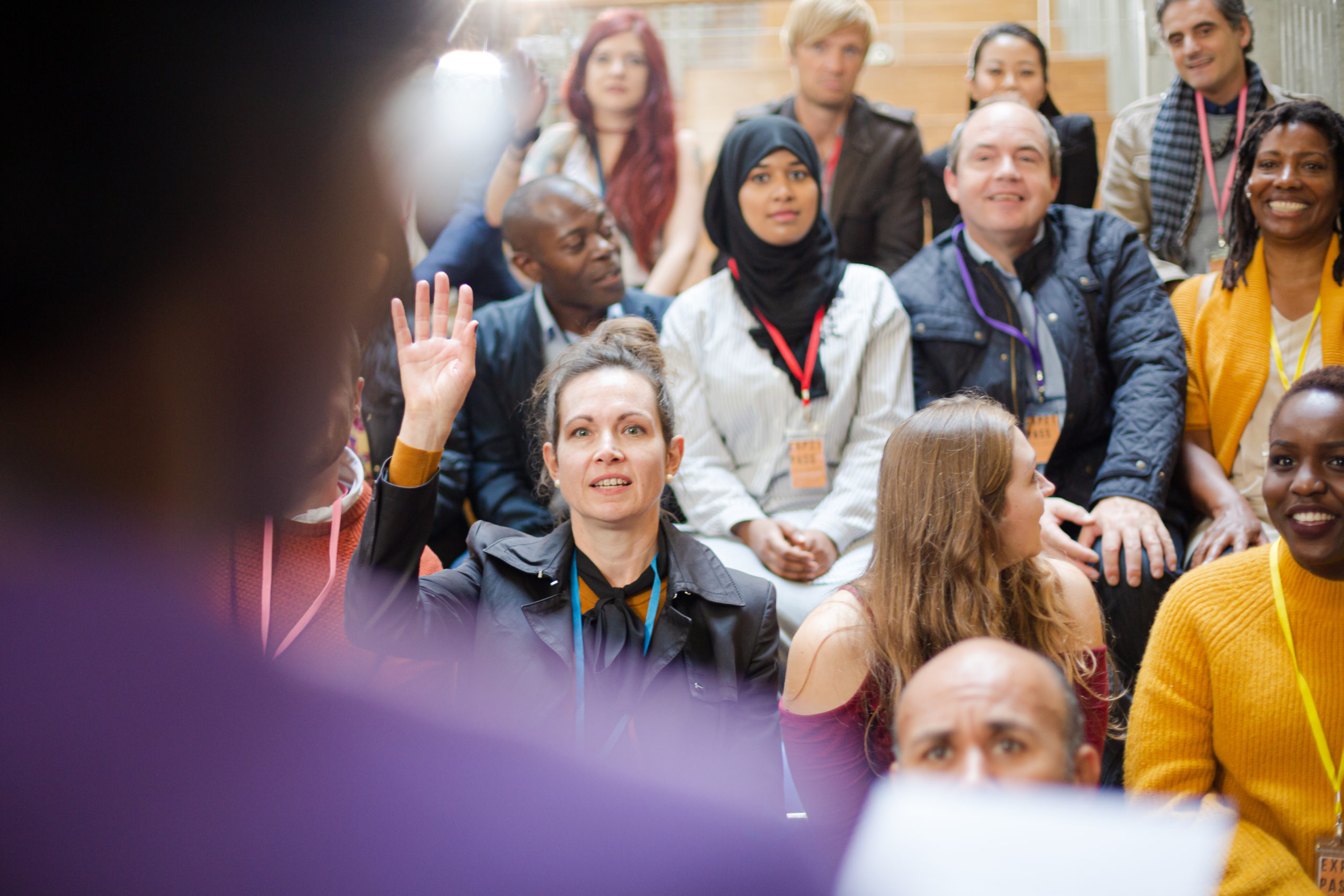
Harriet is a consultant working with private companies on chemical risk assessment. She started her career at AstraZeneca where she served as a study director for multiple projects aimed at developing a combined model for screening new drug compounds. After 5 years at Astra Zeneca, she started consulting on environmental chemical risk assessment for private companies and for the state of Maryland. Harriet joined Emergent Biosolutions in 2015 where she served as the resident toxicologist and nonclinical development manager. She received her PhD in pharmacology from Howard University and completed postdoctoral training at George Washington University.
Dr. Kamendi would like to share the following links:
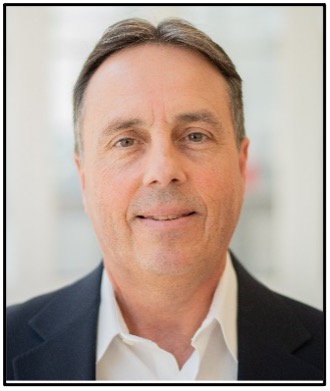
Dr. Vito Sasseville, DVM,
PhD, Dipl. ACVP
Therapeutic Area Head, Ophthalmology
and Tropical Disease
Novartis Preclinical Safety
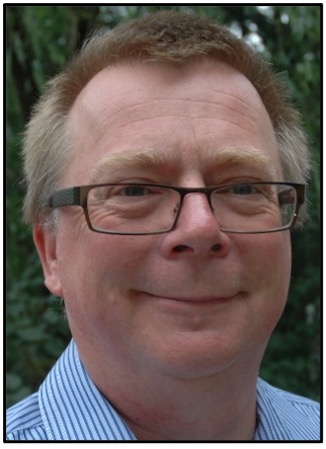
Dr. Mark Milton, MSc, PhD
Global Head Gene Therapy Therapeutic Area
Novartis Pharmacokinetic Sciences
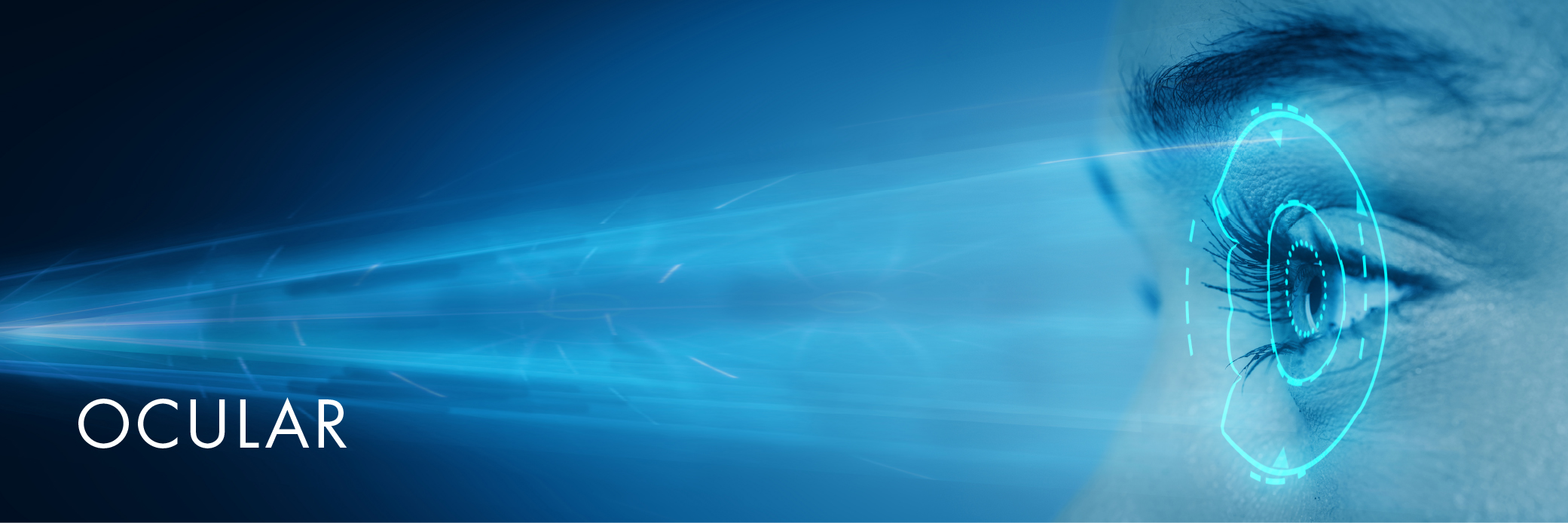
Drs Vito Sasseville and Mark Milton will be presenting:
The Design, Conduct, and Interpretation of Nonclinical Ophthalmology Studies: Ensuring Regulatory Success
• Low Molecular Weight Molecules & Biotherapeutics – Vito Sasseville
• Gene and Cell Therapies – Mark Milton
ABSTRACT: According to the World Health Organization globally there are >2 billion people that have vision impairment. The underlying causes and incidence of vision impairment, which includes cataracts, glaucoma, and age-related macular degeneration vary among countries. Regardless of location, vision impairment severely influences quality of life and poses an enormous global financial burden (https://www.who.int/news-room/fact-sheets/detail/blindness-and-visual-impairment). The accessibility to the front of the eye vs relative inaccessibility to the back of the eye and immune privilege has resulted in diversity in the types of therapeutics and routes of administration. Approved medicines include small molecules, full length antibodies, antibody fragments, and gene therapy with many various routes of administration (e.g. parenteral, topical ocular, intravitreal, and subretinal) that is dependent upon the type of drug. In addition, implanted devices and novel formulations have been employed to extend the residence time of administered drugs. Depending upon route of administration (topical, intravitreal, etc.) study design and interpretation are influenced by numerous factors such as limited volume for drug delivery; relative inaccessibility of sampling ocular matrices for PK/PD/immunogenicity assessment; and the lack of a clear understanding of the temporal relationship of to the systemic and ocular immune response, and intraocular events. Moreover, with intravitreal administration, there is an increased risk of adverse events secondary to drug product impurities over that observed with the systemic administration of pharmaceuticals. However, the role of ocular immunology and the translatability of the anti-drug antibody response to this process remain poorly understood. All of these factors come into play when choosing the appropriate toxicology species, route(s) of administration, and study duration to enter clinical trials. Whereas dogs and rabbits may be the most appropriate toxicologic species for small molecules applied topically, these species are usually avoided in biotherapeutic drug development. The ocular administration of biotherapeutics and gene therapies to preclinical species, notably the cynomolgus monkey, has shown an unusual and diverse range of ophthalmologic and microscopic findings ranging from an acute mild transient anterior inflammation to a delayed onset and persistent inflammatory response. It is important to differentiate findings in preclinical species associated with an anti-drug antibody response to intravitreal injection of “foreign” agents versus a response to vehicle component/impurities (e.g. HCP). Specific case examples will be given to show the wide range of inflammatory responses observed with the administration of biotherapeutics in the preclinical setting. This presentation will give an overview of how to design, conduct, and interpret nonclinical ophthalmology studies to ensure regulatory success.
Vito Sasseville received his D.V.M. from Tufts University; a Ph.D. from The University of Connecticut; obtained board certification in Anatomic Veterinary Pathology; and conducted his postdoctoral research and served as an Assistant Professor in the Department of Pathology, Harvard Medical School investigating the molecular mechanisms of Simian Immunodeficiency Virus-induced encephalitis.
Vito left academia to support the Drug Safety groups at Bristol-Myers Squibb and Millennium Pharmaceuticals (Takeda), and in 2011 he joined the Novartis Institutes of Biomedical Research as Global Head of Discovery Pathology. Vito is recognized for his work investigating the impact of existing and newly emerging nonhuman primate pathogens in nonclinical drug development and in the safety assessment of ocular therapeutics. Vito is currently the Preclinical Safety Therapeutic Area Head for Ophthalmology and the Novartis Institute for Tropical Diseases.
Mark Milton is the Global Head of the Gene Therapies Therapeutic Area in the Pharmacokinetic Sciences Department at Novartis where he oversees the immunogenicity, biodistribution, and shedding of Gene Therapies.
Mark received a B.Sc. in Biochemistry and Soil Science from UCNW, Bangor, a M.Sc. in Toxicology and Ph.D. in Biochemical Toxicology from the University of Surrey, England. Mark has almost 30 years’ experience in the nonclinical and clinical PK/PD of NCEs, Biologics, and Gene Therapies. Prior to joining Novartis in Jan 2009, Mark worked at GD Searle, Millennium Pharmaceuticals, and Tempo Pharmaceuticals. At Novartis Mark has provided leadership in ocular PK/IG, the PK/PD/IG of Biologics, and Gene Therapies.
Mark is the past-chair of the BioSafe PKPD EWG, a member of the BioSafe LC, IQ Board of Directors, a member of the AAPS pre-existing antibody and Immunogenicity Risk Assessment Working Groups, and was the BIO observer to the ICHS3A Q&A WG. He has published over 30 peer-reviewed publications and book chapters and presented extensively on the development of NCEs, Biologics, and Gene Therapies.
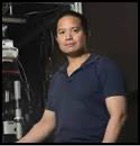
Dr. Michael Tri H. Do, PhD
Associate Professor
Harvard Medical School
and Boston Children’s Hospital

Dr. Michael Do will be presenting:
Visual Specializations within and across Species
This presentation will highlight two circuits of the mammalian retina, compare one circuit between mice and macaques, and explore the implications for human health. The first circuit endows humans and other primates with a visual acuity that outstrips those of other mammals, and the second allows light to regulate diverse aspects of physiology that include the circadian clock, sleep, and melatonin levels.
Michael is an Associate Professor at Harvard Medical School and Boston Children’s Hospital. Mike obtained his Ph.D. in Neurobiology at Harvard Medical School and completed postdoctoral training at Johns Hopkins University School of Medicine. Mike’s lab, established in 2011, investigates how the nervous system senses light for perception and physiological regulation.
Dr. Do would like to share the following links in support of the ophthalmology community:
Research Centers
Michael Do – Harvard Brain Science Initiative
FM Kirby Neurobiology Center | Innovation. Collaboration. Translation.
Home | Center for Brain Science (harvard.edu)
Division of Sleep Medicine | Sleep Medicine (harvard.edu)
Research supported by Biomere expertise and resources:
Optimized Signal Flow through Photoreceptors Supports the High-Acuity Vision of Primates: Neuron (cell.com)
Societies and Meetings:
The Association for Research in Vision and Ophthalmology (arvo.org)
Society for Neuroscience – Website Home Page (sfn.org)
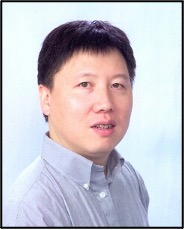
Dr. Crusoe Nan, MD, PhD, DABT
Chief of Neuropharmacology
JOINN Laboratories
Suzhou, China

Dr. Crusoe Nan will be presenting:
Production and Verifications of MPTP Induced Parkinson’s Disease in Non-human Primates
Crusoe gained his MD from Wuhan University School of Medicine, his PhD in Neuroscience from Fudan University Shanghai Medical School, and had been practicing Neurosurgical clinics before going to University of Minnesota at Twin Cities for his post-doctoral research in Neuroscience, where he got DABT. In 2017 he returned to China and joined Joinn Laboratories in Suzhou, where he acts as the Chief of Neuropharmacology and aims to set up a complete Neuro-behavioral assessment system for non-human primate models with CNS diseases.
Networking Opportunities
Breakfast, lunch and networking breaks will be provided during the day.
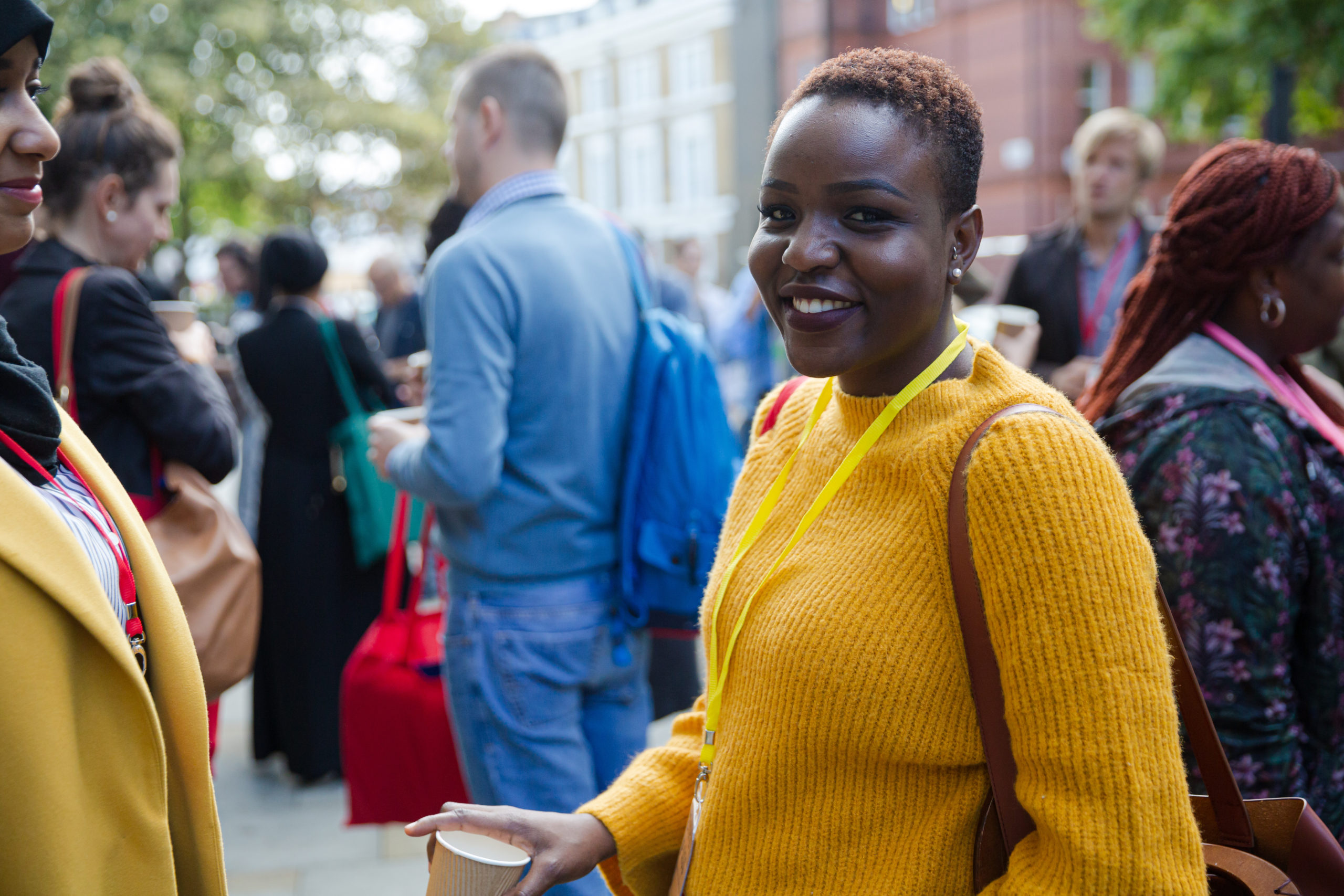
Activities
Facility Tour
The Biomere west coast vivarium is a five-minute walk from the symposium hall in the JOINN Innovation Park. We will be hosting a short tour for those who are interested.
Dinner Cruise on Berkeley Harbor
Join us for a networking dinner post-event aboard the Sunset Hornblower on Berkeley Harbor (must register for the cruise in advance. Limited seating).
Dinner Cruise Shuttle
A transport has been arranged to shuttle our guests from the symposium hall entrance to the Doubletree Berkeley Marina, and back after dinner cruise.
5:00pm
Shuttle Arrives at Symposium Hall and Symposium Hall Parking Lot
5:20pm
Shuttle Departs Symposium Hall and Symposium Hall Parking Lot
5:45pm
Shuttle Arrives at Doubletree Berkeley Marina
5:45pm
Boarding Begins / Sunset Hornblower
6:00pm
Boat Departs Berkeley Marina
9:00pm
Boat Returns to Berkeley Marina
9:00pm
Shuttle Arrives at Berkeley Marina
9:15pm
Shuttle Departs for Symposium Hall and Symposium Hall Parking Lot
9:40pm
Shuttle Arrives at Symposium Hall and Symposium Hall Parking Lot
